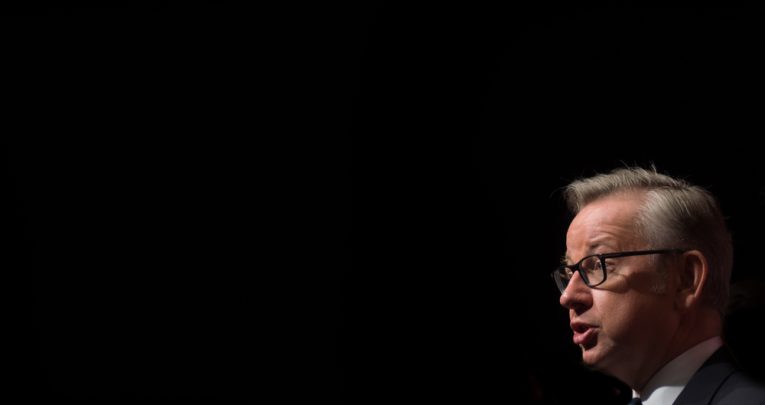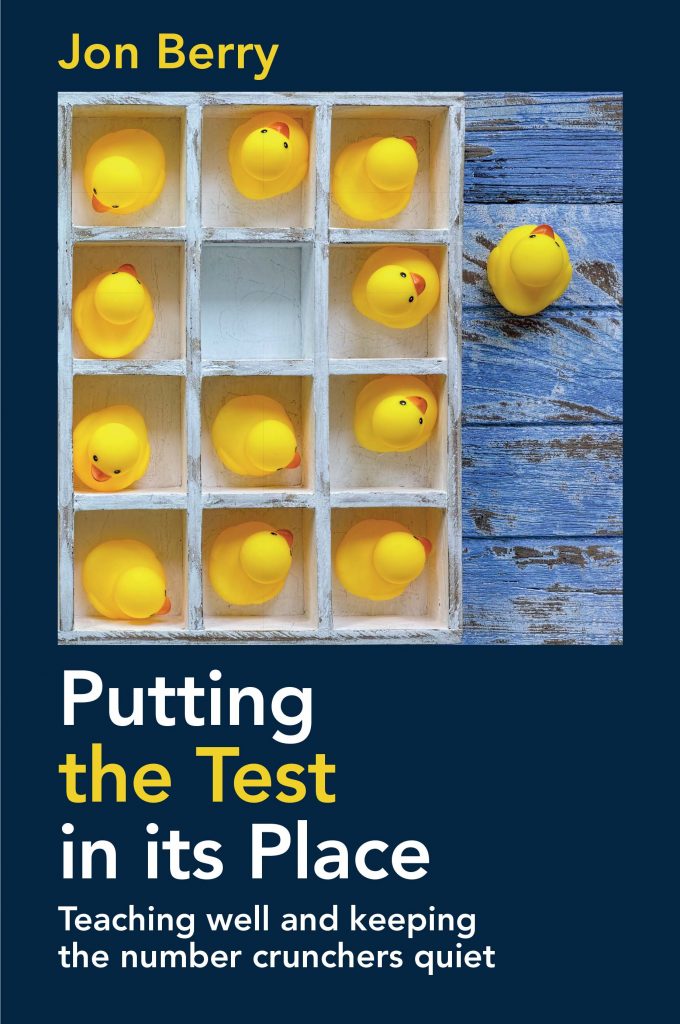Gove’s Legacy is Still Shackling Schools and Selling out Children’s Education

You’re free to teach how we tell you to – the autonomy paradox at the heart of this government's education policies

- by Jon Berry

In 1988, Thatcher’s Conservative government passed the Education Reform Act, introducing the National Curriculum, clearing the path for the open privatisation of the education system embodied in The Academies Act of 2010.
In the 28 years since ERA there have, at the time of writing, been 14 secretaries of state. Only one of these post-holders, Estelle Morris (Labour), was ever a teacher, and the lack of understanding and empathy from senior politicians emerges as a frequent complaint from teachers.
Although some of the 14 post-holders went on to the greater offices of state (education is not deemed to be of sufficient importance to be so designated) many sank without trace. That could not be said of Michael Gove.
Appointed in May 2010 he was removed from office in July 2014, by which time he was deemed by government advisers to be a ‘toxic liability’ among teachers (Watt and Wintour, 2014), his period in office was the longest for well over 60 years.
During that time his influence on schools and teachers was profound.
It was also ideologically driven to an extent that needs to be carefully examined if we are to understand where schools currently find themselves and how resistance to the ideas that drove him need to be nurtured and changes put in place.
Toxic liability
A few weeks before taking office, Gove said: ‘the Conservative Party will give you freedom to teach how you want to’.
So how is it possible that someone capable of expressing such positive sentiments could be deemed a ‘toxic liability’ some four years later?
The answer lies in the political imperative that informed the thinking of Gove and his supporters.
For an indication of just how strong that imperative was it is worth looking at the extraordinary speed with which the new government framed and introduced legislation pertaining to schools.
Within three months of taking office, the Academies Act was on the statute books. The justification for this haste was cleverly couched in language that, on the surface, might well seem appealing to teachers, with Academy schools being the very epitome of freedom and independence from central control.
On the face of it, what could be better? But in order to explain the ironies and paradoxes that undermine this apparently benign set of intentions, we need to look closely at this far-reaching piece of legislation.
- The Academies Act (legislation.gov.uk) consists of 20 provisions over the same number of pages.
- Curricular provision is mentioned once, teachers are not mentioned at all and the three references to headteachers are all in terms of them becoming ‘proprietors’ of schools.
- The Act concerns itself almost exclusively with the apparatus of establishing schools as independent financial entities.
- The powers of the Secretary of State are mentioned on 51 occasions and there are 10 provisions for the transfer of land, as well as other fiscal and organizational responsibilities, away from local authorities; six of these deal exclusively with the ceding of these powers to the new ‘proprietors’.
In other words, this is about facilitating the privatisation of education and absolutely nothing to do with teaching and learning.
These very economic and political drivers play out in the classroom in a whole range of ways.
How this plays out in the classroom
I was once conducting a final observation of a training teacher in a school located in an area of clear economic and social deprivation.
The buildings were new and clean – the school had recently undergone conversion to an academy – and it appeared to be well resourced.
I watch a young man ready to teach a Year 10 ICT class, as the class enter in orderly fashion, exchange low-key pleasantries with the teacher, log on to their computers and generally seem ready to start work in a purposeful way.
I note all of this as being extremely positive and testament to the working relationship that this young teacher has established with his class. What is more, he has taken an apparently dry subject about computer images and has worked this so that the class will be looking at body-image in advertising.
But with the class set up and ready to work, he embarks on an explanation of how the work they will be doing today will help them to boost their grades from Ds to Cs. To reinforce the message, he projects the grade criteria on to the whiteboard. The class take not one blind bit of notice.
He continues with the lesson, which is a good one, and as it draws to its close, he begins to recap … by talking about how today’s work will help them ensure that they get a C grade. Once again, no-one listens.
He later explains what I already knew: he is obliged to top and tail each of his lessons with this script for the school’s pursuit of results and outcomes.
Subject hierarchy
One further way in which the autonomy of schools and teachers is threatened is the narrowing of what is taught and the way in which some subjects are endowed with greater importance than others.
As far back as 1971 the content of the school curriculum was exercising politicians – most specifically those with rightward leanings. Characterized by many academics as the New Right (Johnson, 1991), much of their thinking is echoed by Gove and his successors.
All of which would now seem somewhat fanciful had such thinking disappeared into the mists of time.
Far from having done so, much of what informed the New Right nearly half a century ago is easily recognizable in current government policy in England.
Nowhere does this manifest itself as starkly as in the centrality of two features of school-life: the so-called English Baccalaureate and the new Standardized Assessment Tests (SATS) at Key Stage 2.
This privileging of some subject areas over others begins in primary schools, and while it is worth restating the point that no teacher would ever argue about the central importance of teaching children to read, write, and be numerate there is no pedagogical research or precedent that supports an approach to the education of very young children that relegates play, experimentation, failure (heaven forbid!), or the pursuit of the peculiar in favour of an unbalanced diet of ‘literacy and numeracy’.
This narrowing of the curriculum to what can be measured and tabulated is firmly entrenched and has been for some 20 years. It represents a triumph of political ideology and dogma over professional experience and expertise.
It has had a profound effect on what is taught and what children are able to learn. It has had an effect on the wellbeing of students and teachers and their relationship with each other (Hutchings, 2015).
It has created a situation where attrition rates from teaching are alarmingly high and where unnecessary workload is identified as the prime factor of dissatisfaction in a job which, otherwise, teachers say they love (Lightfoot, 2016).
None of this matches up to Gove’s promise of freedom to teach ‘how you want to’ or ‘freedom from prescription and unnecessary bureaucracy’.
What I remain entirely confident about, however is that, to borrow again from Ball (2003), the soul and the spirit of teachers has not been captured.
 This feature is adapted from Dr Jon Berry’s book Putting the Test in its Place: Teaching well and keeping the number crunchers quiet.
This feature is adapted from Dr Jon Berry’s book Putting the Test in its Place: Teaching well and keeping the number crunchers quiet.
His book, Teachers Undefeated, is also available now via Amazon. To order multiple copies, contact the author at j.berry@herts.ac.uk











